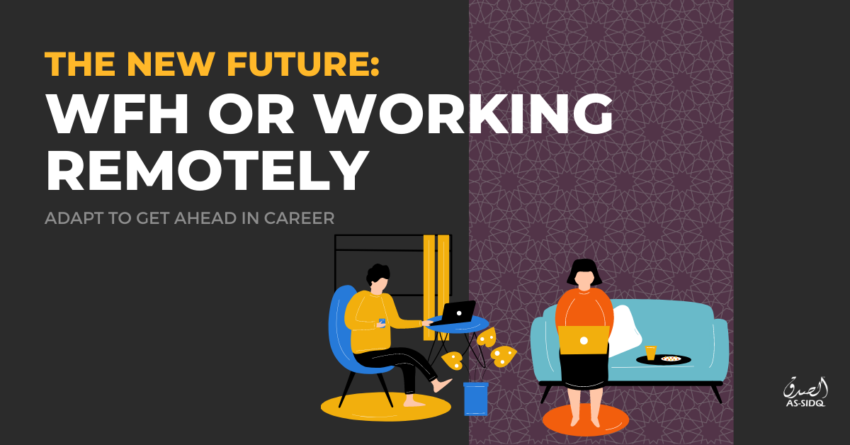As at December 16, 2020, Malaysia has surpassed China with nearly 88,000 total Covid-19 cases, according to CodeBlue’s report. Malaysia’s Covid-19 cases per 100,000 population (270) and deaths per 100,000 population (1.32) are also higher than China’s six cases and 0.32 deaths per 100,000 population.
The report also reveals that Malaysia now has the 79th highest total Covid-19 cases in the world. Other ASEAN countries reporting a larger number of coronavirus infections than Malaysia are Indonesia ranked 19th (636,154 cases), the Philippines at 28th (452,988), and Myanmar at 69th (110,667).
The deadly pandemic that started in the first quarter of 2020 has changed many aspects of our lives, from the way we shop, the way we interact with people, to the way we work. Throughout the world, governments have mandated their citizens to work from home (WFH), including Malaysia.
The challenges of working from home or remotely
According to a recent survey by KPMG Malaysia, 69% of employees in Malaysia would like to continue WFH or working remotely after the pandemic is over, while 64% reported facing difficulties that need to be addressed. Meanwhile, 56% of employers in Malaysia support WFH post-pandemic.
The top three challenges that hinder Malaysian workers’ productivity while WFH include network issues (61%), communication barriers (14%), and lack of technology readiness (10%).
Whether we like it or not, WFH or working remotely is on the rise and here to stay, so the sooner we’re able to adapt, the better we can get ahead in our careers. If you’re one of the 64% workers who are facing difficulties with WFH, here are a few tips to help you adapt better:
- Have the right tools
Lack of technology readiness will impact your productivity. So make sure to have the right tools for communication and collaboration, such as Microsoft Teams, Skype, video conferencing tools, email, and social media applications. If you’re not used to any of these, get help from your manager or colleague on how to use them. Likewise, if you’re not provided with such tools, ask your IT department for help. - Ensure your network is strong and stable
Frequent interruptions like network problem will reduce your productivity. So make sure your network is working perfectly and stable at all times by subscribing to the best home broadband plans. The best ones may be a bit costly, but they’re a good investment for your career. Use an online comparison site to make it easy for you. - Have a dedicated workspace with no distraction
It’s more ideal if you have a dedicated workspace, like a special room just for working. This is especially important, as it will help keep distractions away, especially if your family is also at home.
You may also want to consider investing in ergonomic items such as ergonomic chairs, tables, external keyboards, monitors, or noise-cancelling headphones that could help you be more comfortable while working. Not only will your productivity improve, your mental and physical wellbeing will also increase positively. - Set boundaries to avoid burnout
Have a dedicated conversation with your family. Let them know that you’re not available during your working hours, and help them to understand why they’re not allowed to distract you (like knocking on the door or asking for help with something) unless there’s an emergency.
Similarly with your boss, colleagues, or clients, it’s better to set boundaries so that you don’t burnout. Unless it’s urgent, any messages/emails sent or calls/requests made after the working hours can be replied on the next working day. If the people you work with are not the understanding kind, try to reason with them. - Set a proper routine, but be flexible with the structure
There are many benefits to working from home, for example you’ll get extra time in the morning and evening to do the things that could improve your wellbeing, rather than commuting for hours and being stuck in traffic.
Start a new routine and take advantage of the extra time you have by doing activities such as studying, reading, cooking, bonding with family, exercising, meditating, or simply resting. You don’t have to do all of these things on a daily basis. Just go with the flow and be flexible. Do whatever you feel like it within reasons. - Stay social to prevent loneliness and depression
You can still have your “water cooler chit-chat” with your colleagues, only virtually. Chat about non-work stuff with your close colleagues when you’re not so busy via communication apps like WhatsApp, Slacks, Telegram, or even on collaboration tools like Microsoft Teams and Skype.
If you’re still finding it hard to adjust to working from home, talk to a counsellor or therapist through free or subsidised mental health helplines and resources that are available in Malaysia, such as Befrienders, Malaysian Mental Health Association (MMHA), SOLS Health, MIASA, Life Line Association Malaysia, or Relate Malaysia.


